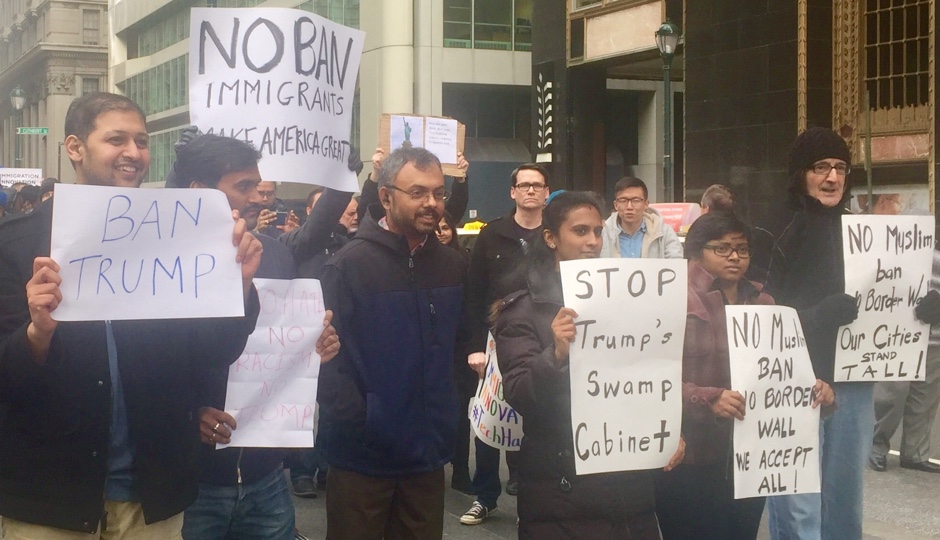How Anti-Trump Employees Are Changing the Workplace

Comcast employees protest Trump’s immigration ban.
Since President Trump took the oath of office, executives at companies like IBM, Facebook, and Uber have faced internal pressure from anti-Trump employees who are pushing their bosses to speak up about their politics.
During election season, the question making the rounds was: “How do I deal with my Trump-loving co-workers and boss?” But now, as Bloomberg reports, anti-Trump employees are “pushing top bosses to sever their personal or professional ties to the administration, registering their dissent with protests, walkouts, and open letters.”
When IBM’s CEO congratulated Trump on his victory, employees started a petition and some even quit their posts. Facebook’s Mark Zuckerberg started an initiative to address fake news after employees advised him to. More recently, Uber’s CEO removed himself from Trump’s advisory council after mounting internal and external pressure. He told employees in an email that staying on the council was going to get in the way of the company’s commitment to immigration and refugees.
And even job candidates are making apparently decisions based on company politics.
Right here in Philly, a 39-year-old lawyer canceled an interview at Morgan, Lewis & Bockius after learning that the law firm was advising Trump on how to handle his business conflicts and that it had been recognized as the “Russia Law Firm of the Year” in 2016 by Chambers Europe. The candidate told recruiters that he couldn’t work at a firm that didn’t seem to share his principles, according to Bloomberg. A Morgan Lewis spokesperson told the publication that “Morgan Lewis attorneys have assisted clients of all political persuasions in many other contexts” and that they had experienced “zero drop-off” in attorneys interested in working with the firm.
Bloomberg also noted that few companies might follow Comcast, which gave employees paid time off to walk off the job last week in protest of the immigration ban. The Comcast march was organized by anti-Trump employees, and one executive, the company’s CTO Sree Koteng, joined the group of technologists for the protest. Onlookers who opposed the decision of Comcast employees wondered what kind of workplace was being shaped when some workers stayed behind and others took to the streets. “When’s Comcast going to support employees who want to go to a pro-life march?” someone asked me.
“Companies that want to hold on to their best talent are going to have to explain and uphold the values their corporations espouse on everything from diversity to protecting the environment,” an expert on workplace diversity told Bloomberg.
Though dissension in the workplace is nothing new, it looks like employers need to start drafting new plans and strategies to work with dissenters.
Follow @fabiolacineas on Twitter.


